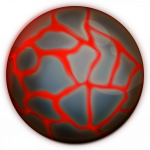Difference between revisions of "Planets"
m |
m |
||
| Line 3: | Line 3: | ||
Attacking a planet uses up all [[Resources#Bacteria|Bacteria]] and [[Resources#Nanobots|Nanobots]], and resets [[Colonies|colonies]] and bacteria [[Upgrades|upgrades]]. Destroying planets unlocks new upgrades and features, such as [[Research#Colony Irradiation|colony irradiation]] or [[Research#Nanobot Production|Nanobot production]]. | Attacking a planet uses up all [[Resources#Bacteria|Bacteria]] and [[Resources#Nanobots|Nanobots]], and resets [[Colonies|colonies]] and bacteria [[Upgrades|upgrades]]. Destroying planets unlocks new upgrades and features, such as [[Research#Colony Irradiation|colony irradiation]] or [[Research#Nanobot Production|Nanobot production]]. | ||
| − | A planet counts as destroyed if its remaining population has been reduced to 0. Killing a percentage of a planet's population earns | + | A planet counts as destroyed if its remaining population has been reduced to 0. Killing a percentage of a planet's population earns [[Resources#Gene Strands|Gene Strands]] and there is no limit to how many times the player can attack one planet to destroy it. |
| − | However, it's not possible to attack a planet if the player cannot gain even one gene strand or if he has less than 1 | + | However, it's not possible to attack a planet if the player cannot gain even one gene strand or if he has less than 1 Bacteria. |
Each subsequent planet increases in population and defenses. | Each subsequent planet increases in population and defenses. | ||
| Line 14: | Line 14: | ||
=Population= | =Population= | ||
| − | Each planet has a larger population than the previous one | + | Each planet has a larger population than the previous one. The higher the population, the more Gene Strands can be earned from completely destroying the planet. For example, destroying Mars earns the player 10 Gene Strands, but a more populated planet like Mercury gives 85 Gene Strands. |
| − | |||
| − | |||
It's possible to view the population of previous planets since the last [[Black Hole]] in the Destroyed Planets panel. | It's possible to view the population of previous planets since the last [[Black Hole]] in the Destroyed Planets panel. | ||
Revision as of 07:19, 12 September 2017
The main goal in Bacterial Takeover is to destroy as many planets as possible.
Attacking a planet uses up all Bacteria and Nanobots, and resets colonies and bacteria upgrades. Destroying planets unlocks new upgrades and features, such as colony irradiation or Nanobot production.
A planet counts as destroyed if its remaining population has been reduced to 0. Killing a percentage of a planet's population earns Gene Strands and there is no limit to how many times the player can attack one planet to destroy it.
However, it's not possible to attack a planet if the player cannot gain even one gene strand or if he has less than 1 Bacteria.
Each subsequent planet increases in population and defenses.
After entering a Black Hole, the player enters an alternate timeline where none of the planets have been destroyed. The planets in the alternate timeline have the same stats and defenses, but can unlock different features. For example, destroying the fifth planet after the first Black Hole unlocks Bacteria irradiation.
There is no known limit to how many planets there are in the game.
Population
Each planet has a larger population than the previous one. The higher the population, the more Gene Strands can be earned from completely destroying the planet. For example, destroying Mars earns the player 10 Gene Strands, but a more populated planet like Mercury gives 85 Gene Strands.
It's possible to view the population of previous planets since the last Black Hole in the Destroyed Planets panel.
Defenses
Currently, there are two types of planet defenses: Nanobot resistance and antibacterial shields.
Nanobot Resistance
Nanobot resistance reduces the effectiveness of nanobots. There are 4 tiers of nanobot resistance: none, low, medium, high.
| Planet Number | Nanobot Resistance |
|---|---|
| 1-7 | none |
| 8-9 | low |
| 10-20 | medium |
| 21+ | high |
Shields
Starting with Tesmielara, all planets have shields, which makes them harder to infect.
The shield level increases by 1 for each planet. So the next planet after Tesmielara will have Level 2 shields and so on.
